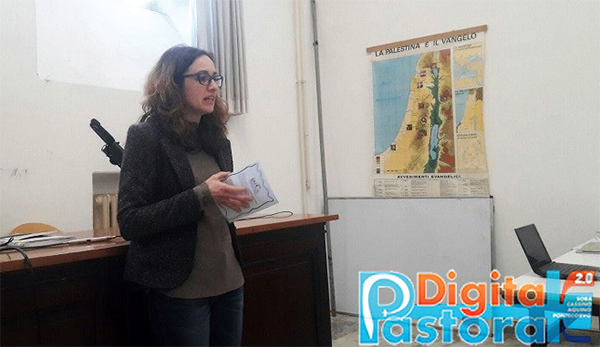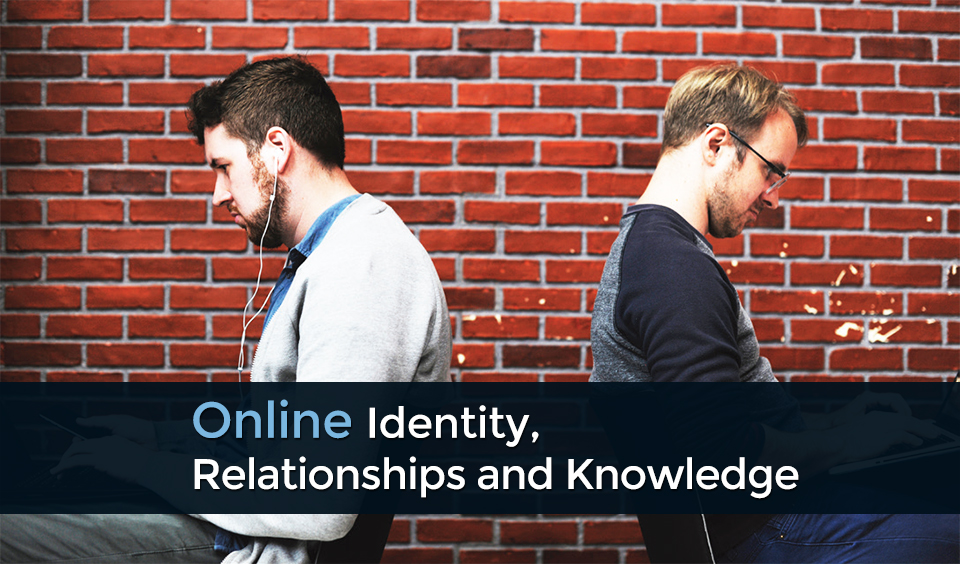Millions of people throughout the world use social networks. Many of the themes debated by the public revolve around issues connected to the Internet–from the loss of privacy to cyber-bullying, from fake news to the consequences of the Internet’s influence on democratic processes. By now we can see for ourselves that the Internet is an integral part of our life. We are constantly connected to it, to the point that we are no longer able to distinguish the borders between “online” and “offline.” We have reached the point that digital technologies have become extensions of our body.
The spread of cell phones, smartphones and wireless connections has disrupted the continuity between what was once called “real life” and “virtual life.” And this has important consequences on individuals, groups and society as a whole.
Social networks help us to build our identity. By means of them, we cultivate relationships in society and increase our knowledge about things outside the realm of our direct experience. Because these three dimensions define our rapport with the world, it is necessary to reflect on them, especially from a pastoral perspective. Let us do this here and now.
Traces of our identity constantly emerge online in the form of what others say or post about us, and what we ourselves reveal both consciously and unconsciously through our presence online (for instance, when we do a google search; when we click a “like” next to something posted on Facebook, or when we post a picture of ourselves on Instagram). These different types of information should be consistent. If they aren’t, we run the risk of undermining the trust of the people with whom we are in contact.
The “tracks” that we leave on the Web belong to different spheres: personal, social and professional. On the same Facebook profile, it is not possible to separate specific interests from one’s personal, family and Church relationships. The woman religious who expresses herself online does so also in the name of her Congregation. What we post, tweet or share will never be exclusively an expression of our personal point of view because our “multiple identities”–formed by a collection of different, intertwined roles–are expressed simultaneously through our accounts and merge together in a single place, making it impossible to distinguish between our personal milieu–in which several roles (daughter, friend, sister, etc.) are already included–and our institutional milieu. We must be aware of this logic because, as Pope Francis reminded us in 2014, the quality of the Church’s presence in social media is based on the degree to which the relevance, credibility and authenticity of the interactions expressed in her name are put into practice each day.
Regarding the second point, social networks are places for building relationships. Here, we are at the center of a network of relationships, some of which are weak (for example, our ties with people whom we know only superficially and interact with sporadically), and some of which are strong (our ties with persons who are already a meaningful part of our daily lives). Social networks, however, are not environments that isolate us from relationships in which we are already involved offline, as has often been argued. For example, a research carried out by the Association of Italian Catholic Webmasters (WeCa) revealed that women religious reproduced on social networks the bonds within their religious community. In building their own network, these religious tended to give preference to the “friendship bond” they had with their sisters, regardless of where they were located geographically (in the same community or “far away” in the missions), compensating for the lack of face-to-face contact.
But the social network is also a place in which to cultivate relationships with the faithful. These online relationships can represent a response to the transformations of the ecclesiastical organization in a particular territory, to a change in the forms of religious belief and to a change in the conditions of life of individuals.
Facebook (and social media in general) help promote the individualization and personalization of relationships.
Various styles of presence can be established, depending on one’s personal characteristics, culture, social background, previous experiences and relationships, the type of office held within the ecclesiastical institution, as well as the characteristics of the community to which one belongs. Through the interpersonal and informal relationships established online, in which we express ourselves and get to know others outside our official role, it is often possible to strengthen some relationships or establish new ones.
With regard to the third point: the media have always played an important role in our relationship with the world. If it is true that today our knowledge is being acquired more and more often from the media and that we act as a consequence of what we believe to be true (as Plato taught through his myth about the cave), then those who play a role within the Church have an obligation to get to know the logic that regulates the flow of online communication so as to be able to influence the process of acquiring knowledge. As Pope Francis states in his message for World Communications Day 2018, we need to reflect on the causes, logic and consequences of fake news.
Speaking more generally, it becomes more urgent to learn the rules according to which information and knowledge are produced in the age of social networks, taking into account the fact that more and more users are informed through these networks and also through instant messaging services.
To learn these rules, it is necessary to acquire digital skills: a commitment that cannot be avoided by those called to pastoral service within a religious community, whose members are always more connected and influenced by what they receive and re-mix online.
If we want to make an impact on society, we cannot avoid the challenges and opportunities offered us by the new communications context. It is necessary to do this, however, knowing the rules and the logic that govern these communication environments.

Rita Marchetti
University of Perugia, Italy

